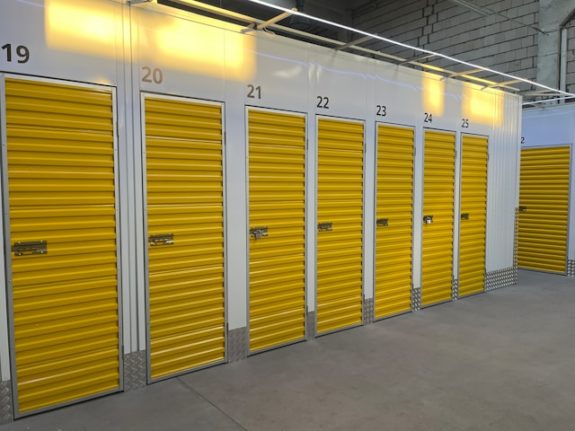As you’re probably aware of already, Spanish homes are usually not very spacious, around 97m2 on average, according to appraisal company TecniTasa.
Sometimes, Spanish apartment blocks have a trastero, a box or storage room for each unit, located on the rooftop, in the garage area underground or somewhere in the building.
This is where tenants and homeowners can pile up all the belongings they’re not using.
However, if you’re leaving your home permanently or temporarily and need to store some if not all of your kitchen appliances, furniture and other belongings, you won’t necessarily have access to such a trastero. And if you don’t have another place to ship your stuff to, this can be pretty challenging.
Perhaps you’re not moving but you’re running out of space at your Spanish home and need to declutter. Maybe you’re refurbishing your home and need to put your stuff somewhere else for a while.
So what storage options are there in Spain? There are plenty.
Storage space is a booming business in Spain (up 68 percent in the past five years), with only France and the UK surpassing Spain in the amount of storage space available for rent.
According to the Spanish Association of Self Storage), in cities such as Seville, Barcelona, Málaga and Madrid, there’s one storage space available for at least every 20 inhabitants, so you’re likely to be spoilt for choice.
Rent a trastero from a private owner
If you visit Idealista, Fotocasa or any other of Spain’s main property websites, you’ll find listings from private owners looking to rent out their storage room.
Depending on their size, location and other factors, you can expect to pay anything from €30 to €200 a month.
Before renting, you will need proof that they actually own the trastero, and you should make sure you ask all the pertinent questions regarding security, mould, insect infestations and other conditions that could damage your belongings.
Rent a storage space from a company
Companies specialising in storage space are often called guardamuebles (furniture storers) in Spain, although many people refer to them as trasteros as well.
There are hundreds of companies that now specialise in this in Spain, so a Google search with guardamuebles and the name of your town or city should produce several useful results.
The benefits of using a professional company over an individual lessor is that they offer more range of storage sizes tailored to your needs, and they’re likely to have facilities which are properly protected from the elements and break-ins.
It’s impossible to give an exact price for a standard of €5 per m³. So for an 8 m³ furniture storage unit, the cost could be €40 per month, and for a 30 m³ storage unit, the cost is €150 per month.
Zebrabox, Oh My Box!, Guardatodo, Homebox, Bluespace are some of the more famous names but don’t forget to shop around for good prices and offers, and to read reviews if possible.
Use a moving company to store your belongings
If you want to kill two birds with one stone and entrust the same company that will eventually move your belongings to your new home to store your stuff for a period of time, you’re in luck, because many of these mudanza companies offer such services.
Amygo, SIT, AGS Movers and Casa Rojals are some of the most well-known moving companies in Spain that also offer storage space.



 Please whitelist us to continue reading.
Please whitelist us to continue reading.
Member comments